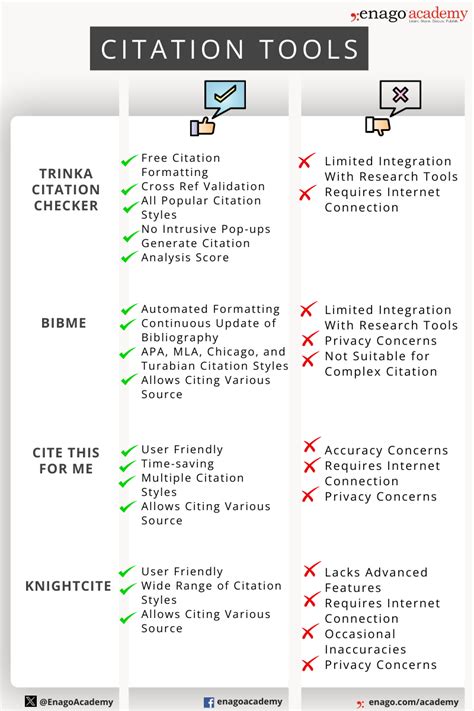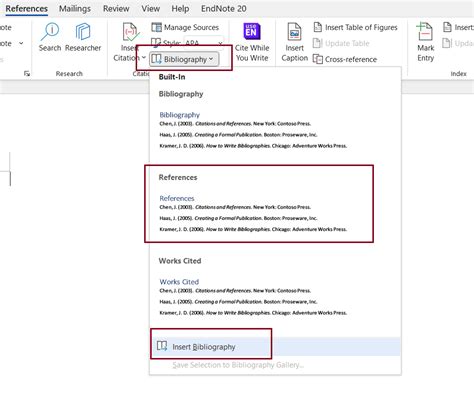Reference Tool

The world of academia and research thrives on the foundation of reliable sources and references. In this digital age, where information is readily accessible, ensuring the integrity and credibility of our work is paramount. That's where reference tools come into play, offering a systematic approach to organizing and citing sources, making the research process more efficient and accurate. This article explores the evolving landscape of reference tools, their impact on academic writing, and how they have revolutionized the way we manage and present our sources.
The Evolution of Reference Tools: From Index Cards to Digital Databases

Reference tools have come a long way since the days of index cards and manual citation guides. With the advent of digital technologies, the landscape of reference management has transformed dramatically. While traditional methods involved meticulous note-taking and organizing sources physically, modern reference tools offer a seamless digital experience, catering to the needs of researchers and writers alike.
The evolution of reference tools can be traced back to the early days of academia, where scholars relied on handwritten notes and meticulous record-keeping. These early practices laid the foundation for the structured citation systems we know today. As academic research grew more complex, the need for organized reference systems became evident. Scholars began developing standardized citation styles, such as APA (American Psychological Association), MLA (Modern Language Association), and Chicago, which provided guidelines for consistently citing sources.
However, it was the digital revolution that truly revolutionized reference management. The advent of personal computers and the internet brought about a paradigm shift in the way references were handled. Digital reference tools emerged, offering a more efficient and organized approach to managing citations. These tools allowed researchers to store and organize references electronically, making it easier to access and retrieve information.
Early Digital Reference Tools
The first digital reference tools emerged in the 1980s and 1990s. These early tools, such as EndNote and Reference Manager, were designed for use on desktop computers and offered basic functionality for managing references. They allowed users to input citation information manually, organize references into databases, and generate bibliographies in various citation styles.
While these early tools provided a significant advancement over manual methods, they still required a fair amount of manual input and lacked the automation and integration features that we see in modern reference tools.
The Rise of Web-Based Reference Tools
With the widespread adoption of the internet, reference tools began to move online. Web-based reference management platforms emerged, offering a more collaborative and accessible approach to reference management. These tools, such as Mendeley, Zotero, and RefWorks, provided a range of features, including cloud storage, collaboration tools, and integration with popular writing software.
Web-based reference tools allowed researchers to access their references from anywhere with an internet connection. They facilitated collaboration by enabling multiple users to work on the same reference library simultaneously. Additionally, these tools often offered plugins and integrations with word processing software, making it easier to insert citations and create bibliographies directly within the writing environment.
The rise of web-based reference tools marked a significant shift towards a more connected and streamlined reference management process. Researchers could now easily share references, collaborate on projects, and access their reference libraries across multiple devices, enhancing efficiency and productivity.
The Latest Innovations in Reference Tools
Today, reference tools continue to evolve and innovate, incorporating artificial intelligence, machine learning, and natural language processing to enhance their capabilities. These advancements have led to the development of more intelligent and automated reference management systems.
Modern reference tools now offer features such as automated citation extraction, where the tool can analyze and extract citation information from PDFs or web pages, saving researchers valuable time and effort. Some tools even provide intelligent citation suggestions, recommending relevant sources based on the user's research topic or writing progress.
Additionally, many reference tools now integrate with popular research platforms and databases, allowing users to import references directly from these sources. This integration streamlines the reference management process, making it easier for researchers to build and maintain their reference libraries.
The latest innovations in reference tools also focus on enhancing the user experience. These tools offer intuitive interfaces, customizable citation styles, and advanced search functionalities, making it easier for researchers to find, organize, and utilize their references effectively.
The Impact of Reference Tools on Academic Writing

The introduction and widespread adoption of reference tools have had a profound impact on the field of academic writing. These tools have transformed the way researchers and writers approach the task of managing and citing sources, making the process more efficient, accurate, and accessible.
Streamlining the Research Process
Reference tools have revolutionized the research process by providing a centralized platform for managing sources. Researchers can now effortlessly organize their references, store relevant information, and access it whenever needed. This streamlined approach saves valuable time and effort, allowing researchers to focus more on the actual research and writing rather than manual note-taking and organizing.
With reference tools, researchers can easily import citations from various sources, including online databases, library catalogs, and even other reference management software. This automation reduces the risk of errors and ensures that references are accurately recorded and formatted.
Enhancing Citation Accuracy and Consistency
One of the most significant advantages of reference tools is their ability to ensure citation accuracy and consistency. These tools provide built-in citation generators, allowing users to automatically create citations in various citation styles, such as APA, MLA, Chicago, and more. This automation eliminates the need for manual formatting, reducing the likelihood of errors and ensuring that citations are consistently formatted throughout the document.
Additionally, reference tools often offer features for checking citation integrity. They can detect and highlight potential issues, such as missing or incomplete citation information, helping researchers maintain the integrity of their work.
Facilitating Collaboration and Sharing
Reference tools have also played a crucial role in facilitating collaboration among researchers. With the ability to share reference libraries and collaborate on projects, researchers can work together seamlessly, regardless of their physical location. This collaborative aspect enhances knowledge sharing and fosters a more connected research community.
Many reference tools offer real-time collaboration features, allowing multiple users to work on the same reference library simultaneously. This ensures that all team members have access to the most up-to-date and accurate information, promoting efficient and effective collaboration.
Improving Accessibility and Organization
Reference tools have greatly improved the accessibility and organization of research materials. Researchers can now store and access their references from anywhere with an internet connection, making it easier to work on projects remotely or collaborate with colleagues across different institutions.
Additionally, reference tools offer advanced search functionalities, allowing users to quickly find specific references based on keywords, authors, titles, or other criteria. This enhances the overall organization of research materials, making it easier for researchers to locate and utilize relevant sources.
Choosing the Right Reference Tool for Your Needs
With the plethora of reference tools available today, selecting the right one for your specific needs can be a daunting task. Each tool offers a unique set of features and caters to different user preferences. Here are some key factors to consider when choosing a reference tool:
Ease of Use and User Interface
The user interface and overall ease of use are crucial aspects to consider. Look for a tool with an intuitive and user-friendly interface that aligns with your personal preferences. Some tools may offer a more simplistic approach, while others provide advanced customization options. Choose a tool that strikes the right balance between functionality and ease of use.
Citation Styles and Formatting
Ensure that the reference tool supports the citation styles commonly used in your field of study. Different disciplines may have specific citation requirements, so it’s essential to select a tool that offers a wide range of citation styles and the ability to customize them if needed.
Integration and Compatibility
Consider the integration capabilities of the reference tool with other software and platforms you use regularly. Many reference tools offer plugins or integrations with popular word processing software, such as Microsoft Word or Google Docs. This integration allows for seamless citation insertion and bibliography generation directly within your writing environment.
Additionally, check if the tool integrates with the research databases or platforms you frequently use. This integration can streamline the process of importing references, making it more efficient and accurate.
Collaboration Features
If you frequently collaborate with others on research projects, look for a reference tool that offers robust collaboration features. These features may include real-time collaboration, shared reference libraries, and the ability to assign tasks or leave comments for team members. A tool with strong collaboration capabilities can enhance teamwork and improve overall productivity.
Storage and Backup Options
Consider the storage capacity and backup options provided by the reference tool. Ensure that it offers sufficient storage space for your reference library and provides reliable backup solutions to protect your data. Some tools offer cloud storage, while others may provide local storage options. Choose a tool that aligns with your data storage preferences and provides adequate backup solutions.
Cost and Subscription Plans
Evaluate the pricing plans and subscription models offered by the reference tool. Some tools may offer free versions with limited features, while others require a subscription or one-time payment. Consider your budget and the features you require to make an informed decision. It’s essential to find a tool that provides value for your investment and meets your long-term needs.
The Future of Reference Tools: Integrating AI and Machine Learning
The future of reference tools looks promising, with ongoing advancements in artificial intelligence (AI) and machine learning technologies. These innovations have the potential to revolutionize the way we manage and utilize references, making the research process even more efficient and intelligent.
AI-Powered Reference Tools
AI-powered reference tools are already making their mark in the academic world. These tools utilize machine learning algorithms to analyze and understand research papers, extracting relevant information and suggesting appropriate citations. By leveraging natural language processing, these tools can automatically identify key concepts, authors, and publications, streamlining the citation process.
AI-powered reference tools can also provide intelligent recommendations based on the user's research topic or writing progress. They can suggest relevant sources, highlight potential citations, and even offer insights into the most cited papers in a particular field. This level of automation and intelligence can significantly enhance the research experience, saving time and effort.
Enhanced Citation Suggestions
The future of reference tools lies in providing more accurate and context-aware citation suggestions. By analyzing the user’s writing and research topic, these tools can offer tailored citation recommendations. They can identify relevant sources, suggest alternative citations, and even provide insights into the impact and relevance of specific references.
Additionally, AI-powered tools can assist in identifying potential plagiarism issues. By comparing the user's writing with a vast database of published works, these tools can flag potential instances of plagiarism, ensuring the integrity of the research.
Intelligent Collaboration and Feedback
The integration of AI and machine learning in reference tools can enhance collaboration and feedback processes. These tools can analyze and provide feedback on the user’s writing, suggesting improvements and offering suggestions for better citation practices. They can also facilitate more efficient peer review processes by automating certain aspects of the review, such as checking for consistency and accuracy in citations.
Personalized Research Experiences
AI-powered reference tools have the potential to offer personalized research experiences. By analyzing the user’s research history, preferences, and writing style, these tools can provide tailored recommendations and suggestions. They can suggest relevant sources, highlight key findings, and even offer insights into the latest trends and developments in a particular field.
Additionally, these tools can assist in managing and organizing research materials, providing intelligent search functionalities and suggesting relevant references based on the user's interests and research trajectory.
Conclusion: Embracing the Power of Reference Tools

Reference tools have become an indispensable part of the academic and research landscape, offering a range of benefits that streamline the research process and enhance the accuracy and integrity of academic writing. From organizing references to generating citations, these tools provide a comprehensive solution for managing sources effectively.
As we move forward, the integration of AI and machine learning technologies will continue to shape the future of reference tools. These innovations will make research more efficient, accurate, and personalized, empowering researchers and writers to focus on their core tasks while leaving the reference management to intelligent systems.
Embracing the power of reference tools is essential for researchers and writers alike. By utilizing these tools effectively, we can ensure that our work is supported by reliable sources, presented accurately, and contributes to the advancement of knowledge in our respective fields.
What are the key features to look for in a reference tool?
+When choosing a reference tool, consider features like ease of use, support for multiple citation styles, integration with word processors, collaboration options, and robust search capabilities. Look for tools that offer automation, such as citation generation and source organization, to streamline your workflow.
How do reference tools enhance the research process?
+Reference tools improve the research process by providing a centralized platform for organizing and managing sources. They automate citation generation, ensure accuracy and consistency, facilitate collaboration, and enhance accessibility, allowing researchers to focus more on their research rather than manual tasks.
Are there any free reference tools available?
+Yes, there are several free reference tools available, such as Zotero and Mendeley. These tools offer basic functionality and are a great option for those starting with reference management or on a budget. However, keep in mind that free tools may have limitations compared to premium options.
Can reference tools help with plagiarism detection?
+Some reference tools offer plagiarism detection features, which can compare your work against a database of published papers to identify potential instances of plagiarism. These features can be a valuable tool to ensure the integrity of your research and writing.



